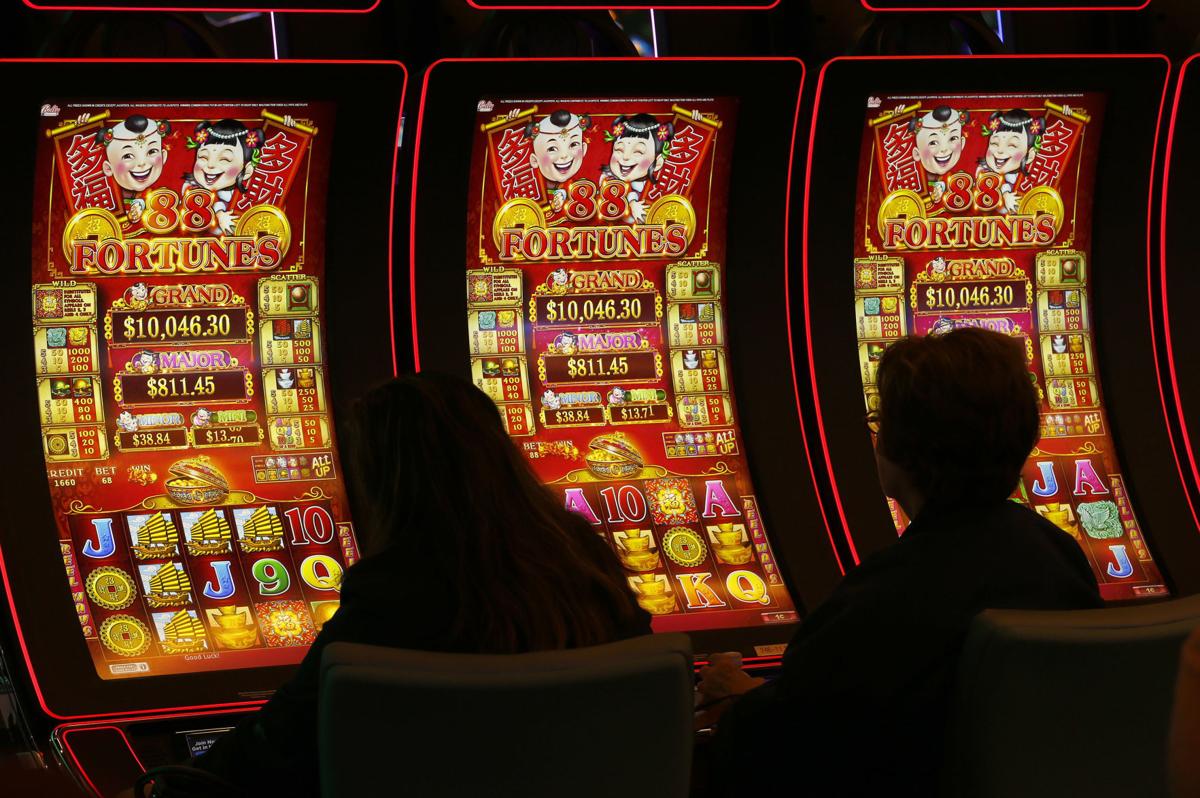PHOENIX — Attorneys and officials of the Tohono O’odham Nation are throwing cold water on the deal proposed by Gov. Doug Ducey over the future of a Glendale casino, suggesting the tribe will take its chances in court than agree to what the state is offering.
In new court filings and statements, the tribe says it’s willing to consider a deal to end the latest lawsuit over its claim that the tribe is entitled to have full-scale Class III gaming at the facility.
However, Karl Tillerman, an attorney for the tribe, told U.S. District Court Judge David Campbell there really is no deal, with the state presenting the offer on a take-it-or-leave-it basis. “Although the nation is still reviewing the state’s proposal and determining how to respond, the proposal’s current terms are unlikely to be acceptable to the nation for a number of reasons,” he wrote.
The tribe’s Glendale casino has been open for a year, but only with Class II gaming, which consists largely of interlinked instant bingo games, a form of gambling the state cannot legally regulate.
Last month Ducey offered to allow Class III gaming on the site. So Campbell asked whether he still needs to hear legal arguments later this month.
Tribal Chairman Edward Manuel said the state’s proposal “includes terms that have not been publicly disclosed.”
Manuel did not say what those are. But documents obtained by Capitol Media Services show that Ducey wants the tribe to agree to support federal legislation that would limit the right of the Tohono O’odham to expand gaming even further in the Phoenix area.
In his own note to Campbell, attorney Matthew Hoffman who represents state Gaming Director Daniel Bergin, rejected the tribe’s offer of settlement talks mediated by a federal magistrate as premature, saying “it will not accomplish the state’s goals.”
So Campbell on Thursday said he’s ready to hear the legal arguments.
Michael Liburdi, the governor’s legal counsel, said he does not understand why the tribe won’t take the governor’s deal.
“This is what they say they want in the litigation,” he said, meaning the ability to offer slot machines, poker, blackjack and other forms of gaming at the Glendale casino. “And we’re willing to give it to them.”
What that suggests Liburdi said, is the tribe hopes to win this lawsuit, get Class III gaming in Glendale — and then still have the legal option to open casinos elsewhere in the Phoenix area.
Manuel, in a prepared statement, said that’s not the case.
He said the tribe is “ready to consider” changes in the gaming agreement that “includes language regarding no new casinos in the Phoenix area,” at least through the term of the compact that runs until 2026.
For the moment, though, the possibility of more casinos remains because of a prior ruling by Campbell.
The 2002 deal giving tribes the exclusive right to conduct casino gaming in Arizona was sold to voters on the promise that gambling would be restricted to existing reservations and that there would be no new casinos in the Phoenix area.
But that deal has an exemption for reservation lands acquired by a tribe in a settlement with the federal government, language state negotiators never questioned.
That’s important because Congress voted in 1986 to give the Tohono O’odham $30 million to compensate for the loss of reservation lands near Gila Bend due to a federal dam project. That law allows the tribe to purchase replacement reservation property in Maricopa, Pima or Pinal counties.
The tribe bought the Glendale property in 2003 but did not disclose its true ownership and plans for a casino until 2009. And when the state sued to block the plans, Campbell ruled what voters were told is legally irrelevant and the compact language allows the casino.
This new lawsuit was filed after Bergin denied the necessary license for Class III gaming on claims the tribe, in concealing its plans, is guilty of fraud and unfit to run another casino.
Liburdi said the governor wants the matter settled. But he said Ducey also wants to be sure the Glendale casino is the last surprise under the 1986 law. “Under the Gila Bend (legislation) they could go into Mesa and they could purchase more land,” he said.
“They could take that land into trust,” Liburdi said, gaining reservation status. “And they could place a Class II (gaming) facility in the middle of Mesa.”
Under federal law the state has no right to ban Class II gaming on reservation lands. What Ducey wants would require the tribe to forswear any rights to Class III and Class II gaming anywhere other than Glendale through 2026.
And there’s more: Ducey wants the tribe to back a new 2017 version of the federal Keep the Promise Act, one that has not yet been introduced, much less had a hearing.
A prior version would have retroactively amended the 1986 law to ban gaming on the land the tribe acquired in Glendale, effectively shuttering the already-operating casino. The most recent version failed to get the necessary two-thirds margin for expedited consideration.
In an email to tribal attorneys, Kirk Adams, the governor’s chief of staff, said the 2017 version would let the Glendale casino remain. But it would spell out in federal law that any other land the Tohono O’odham acquire cannot be home to new casinos.
Tribal officials declined to specifically comment on this late-added demand other than to say this was not part of what Ducey publicly asked the tribe to sign last month. If nothing else, Manuel said, it will “require additional consideration and analysis.”





